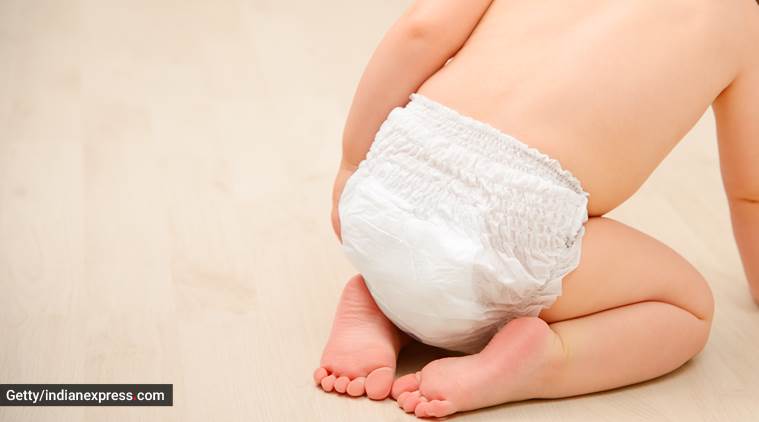
The Indian Express
Till what age can a child be in diapers? A paediatrician answers
'Parents should not delay potty training beyond 18 months.'
by Parenting DeskShibani Basu (name changed on request) gave birth to twin boys in early 2017. While her entire family was jubilant, Basu, who had to return to work in four months, had a nagging worry. Eight months on, her boys were crawling around and even standing with the help of support, but were in their diapers still. “I let it go, since I thought they have not even turned one. But my father-in-law warned that I must get them toilet-trained at the earliest. I just did not have the time back then, so when they turned two, I got them enrolled in a day-care, thinking they will learn something by seeing other kids,” she said.
But, instead of learning from other kids their age, the twins emulated each other and would only relieve themselves when they were in diapers. It got to a point where Basu and her husband would carry diapers with them wherever they went. “Even while pandal-hopping during the Durga Puja festivities!” shared the west Delhi resident. The boys are three now, and are still wearing diapers, though the parents are trying to wean them off it.
This is not a case in isolation. Around the world, many parents struggle with getting their child to potty-train. Sometimes, they grow up and begin going to school, but continue to be in their diapers. This exposes them to many different infections, not to mention the fact that it becomes a task for parents, too, to get them in and out of diapers.
Recently, Hollywood actor Kristen Bell shared that her five-year-old daughter is still in diapers. In an episode of Momsplaining with Kristen Bell, she told actors Maya Rudolph and Casey Wilson that while her older daughter at 21 months was told to use the toilet, and she “never wore another diaper beyond that”, her younger one, aged five-and-a-half, is still in diapers. “Every kid is so different,” Bell remarked in the episode.
But is it ideal for a child that old to continue wearing diapers? And is there anything that parents should know and do to remedy the situation?
“In western countries, parents tend to start their child’s toilet training a little later. In our country, we believe in early toilet training. When children start to sit, around the sixth or seventh month, we advise parents to get them to sit on the potty so that they get used to it. This can lead to a quick toilet training because kids then begin to associate. Ideally toilet training should happen in infancy itself, in the first year,” recommends Dr Neetu Talwar, senior consultant, paediatrics at Fortis Memorial Research Institute in Gurugram.
Dr Talwar says that parents should not delay potty training beyond 18 months. “The body is ready to receive toilet training. Interestingly, it has been observed that mothers who are more educated tend to delay the toilet training of their kids. They may be busy at work and not have the time. It does require time. Three years is the maximum that we wait, and beyond that parents need to find out if there’s any issue or a medical condition,” she adds.
The doctor says it also depends on the personal preference of parents as to how early or late they want to start with the training, and how much time they can devote. It takes a child anywhere between four and six months for them to be fully toilet-trained. “The ultimate advantage when a child is out of diapers is that it is so hygienic. There are less chances of urine infection and diaper rash. Toilet training should be a peaceful time and children and their parents should not feel stressed out. Western countries are now quoting Indian methods of training kids, by making the sounds that the child associates with passing urine. And after they have understood, they will usually wait for the parent to make the sound before they pass. It gives a huge psychological advantage,” she concludes.